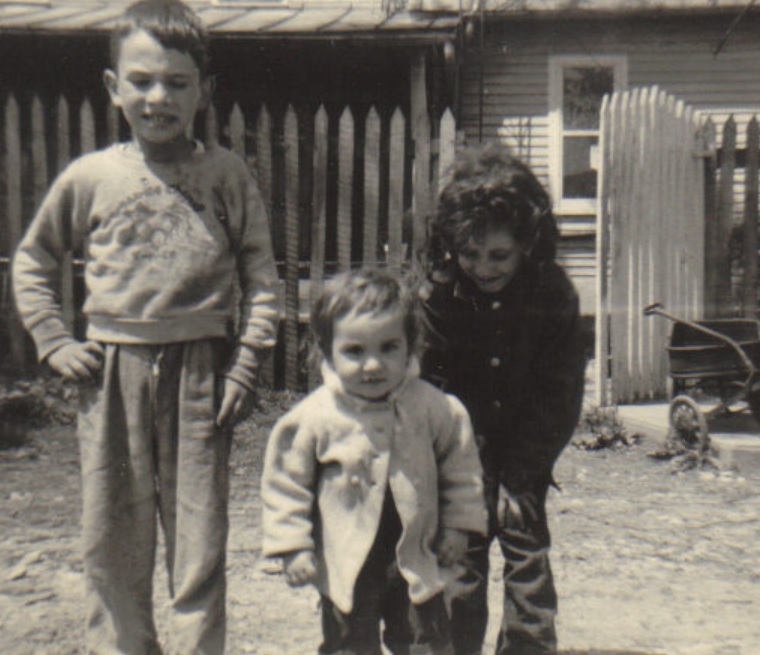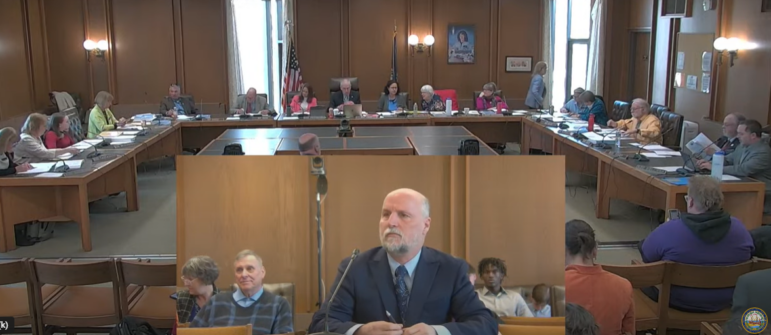Editor’s note: We welcome a new column A NH Life by Beverly Stoddart, a writer, author, and speaker. After 42 years of working at newspapers, she moved on to write books and a blog. She is on the Board of Trustees of the New Hampshire Writers’ Project and is a member of the Winning Speakers Toastmasters group in Windham and the Ohio Writers’ Association. Her latest book is Stories from the Rolodex, mini-memoirs of journalists from the 1960s, 1970s, and 1980s. A prized accomplishment was winning Carl Kassel’s voice for her voice mail when she won the National Public Radio game, Wait Wait…Don’t Tell Me! She has been married for 45 years to her husband, Michael, and has one son and two rescue dogs.
By BEVERLY STODDART, A NH Life
At the age of 17, I left home after graduating from high school in 1972. The urgency was the search for something. We were a lower-middle-class family living within our means in a small steel town in Ohio. In a family of five, two girls and one boy, my parents co-existed with each other. There wasn’t a strong sense of love in our house. My brother was the oldest and had a good relationship with my dad. My sister and I muddled through, clinging to one another. It isn’t a sad story; it’s how it was with parents born in the 1920s. In later years, my siblings and I would tease our mother about making her give us a hug, an act she never understood.
Graduating high school gave me the freedom I wanted. The day after the ceremony, with a brief hug from my mother and no effort on dad’s part to stop me, I left home and moved into an apartment with two girlfriends, Vella, and Pam, with whom I graduated. A three-way split on rent got us a second-floor small apartment in a dilapidated cerulean blue building as I channel The Devil Wears Prada definition of color. It was bargain-basement paint leftover and marked down. We called it the blue hole.
Vella left the home of a single-parent father and lots of brothers. We called her dad Tom which I thought was his name, until my dad called him Paul. Tom, it turns out, stood for the old man. Vella’s mother, who lived elsewhere, was Tol, the old lady. I don’t have a strong recollection of Pam’s reasons to bolt once she graduated except some dusty memories.
I have a clear memory of loving my life with them. We had fun. We laughed. Occasionally, we argued. Those girls gave me the sauce I needed for my dry life. My husband claims he gave me a sense of humor. Yet, it was Pam, the first really funny person I ever knew. She could twist her beautiful face into funny looks and back it up with laugh-out-loud remarks.
I’ve known Vella since the seventh grade. My mother didn’t cook, and so I always got a paid lunch at school. Vella had a bag lunch. She was a tough, athletic girl, as you can imagine thriving as the only female in a house of males. She would make fun of my food and mess with it daily. We have a six-decade friendship continuing today.
We weren’t good at cleaning, and dishes piled up in the sink. One day when maggots squirmed on plates and forks, a male friend shamed us into washing them. Our cleaning improved when a guy you think is cute knows you are a complete slob.
We worked various simple jobs, car-hop, pizza maker until we got a ‘good job’ break. The three of us were hired by an injection-molding plastics factory for second shift work. The factory was run by men, men handled the forklifts and maintenance work, but the rest of the employees were women. We worked the line filling boxes with plastic parts shooting out of an extruder onto a conveyor belt. Those were often auto parts for Fords and Chevys. One job I had was trimming flash off washing machine agitators. Flash is the leftover smidge of plastic leaking out of the mold.
Another job I had was running an industrial stapling machine where I would staple together two larger pieces of extruded plastic. I’d snap two pieces together, run the edge around the large free-standing industrial stapler, and tap the foot pedal to punch the staple. One night on the three-to-eleven shift, after eight hours of snapping and stapling with just a 30-minute lunch break, I managed to staple my finger instead of the plastic. The nail was nearly cut off. All activity stopped. I don’t remember freaking too much, that is until the union steward came walking over to me. To this day, I can see this humorless, stern-faced gray-haired woman moving towards me. For some reason, she scared me more than anything. She was the authority on the floor. We did what she said. They wrapped my hand and got me to an all-night emergency place where I got a tetanus shot and bandage for my finger. The fingernail grew back, and I didn’t lose my job.
We worked there for two or three years, eventually making enough money to move to a nicer apartment in the downtown area of our small town. The new apartment was over a store on Main Street and had original wood detail, large rooms, and beautiful sliding doors.
But all good things come to an end. Vella got married. I moved to Florida, and Pam disappeared from my life. Vella tells me they see one another occasionally. I met my husband in Florida, and we have had a happy life together for 45 years this May. After ten years in Florida, we moved to New Hampshire, where we have lived for 35 years.
Why do we leave home when we are young? My reason was to see if life existed beyond my family, my small town, and a mundane future. I knew I wanted more and leaving home gave me the path to the life I wanted.





